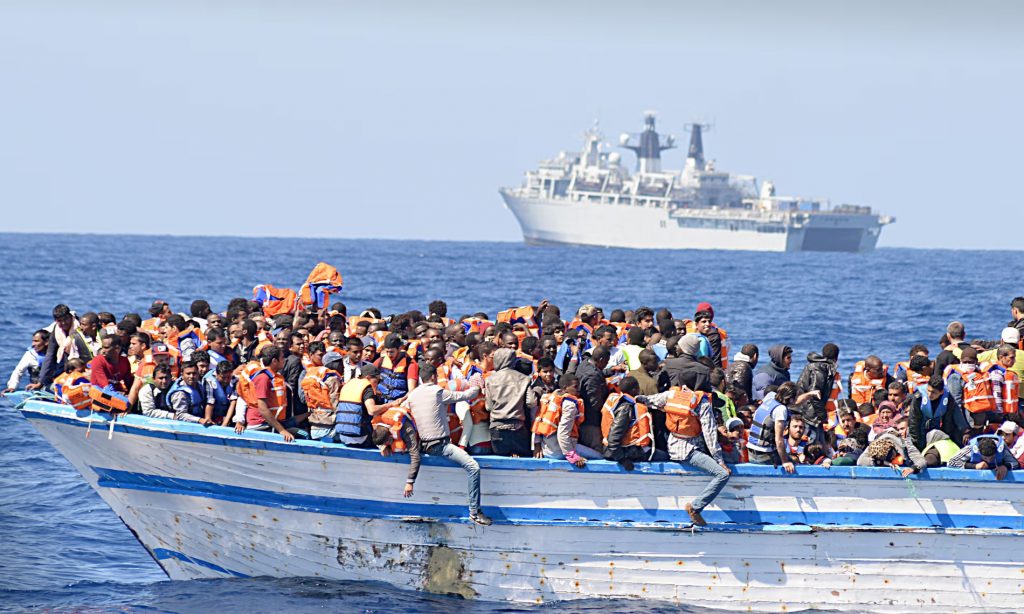Libya’s Grand Mufti, Sheikh Al-Sadiq Al-Gharyani, has firmly opposed European Union (EU) proposals to establish migrant resettlement centers within Libya. Speaking during his weekly television address on Al-Tanasuh TV, he warned that accepting such plans could destabilize the country, bringing serious security risks, economic burdens, and moral concerns. He argued that Libya should not be forced to carry the weight of Europe’s migration challenges while dealing with its own internal struggles
The Grand Mufti strongly criticized European nations for what he described as a hypocritical approach to migration. He pointed out that while European governments are tightening their borders and preventing African migrants from entering, they simultaneously pressure Libya to house these same individuals. He accused the EU of exploiting Libya’s unstable situation to shift its responsibilities onto the North African nation without offering real solutions.
Sheikh Al-Gharyani also condemned the way European countries handle migrants attempting to cross the Mediterranean. He accused them of abandoning people at sea, leading to tragic deaths, while expecting Libya to manage the crisis alone. He warned that allowing the resettlement of migrants in Libya could create long-term challenges, making the country a holding ground for people Europe does not want to accept.
In his address, the Grand Mufti also directed sharp criticism at military commander Khalifa Haftar, blaming his forces for failing to secure Libya’s southern borders against human trafficking. He claimed that weak border control has allowed smuggling networks to thrive, putting both migrants and Libyan communities at risk. He called for stronger actions against these networks and urged international organizations to impose sanctions on those profiting from human trafficking.
Furthermore, Sheikh Al-Gharyani stressed the importance of enforcing Libya’s immigration laws. He stated that all foreign nationals entering the country must have proper documentation, including valid visas and legal sponsorship. He argued that individuals without legal status should be returned to their home countries in accordance with Libyan regulations.
The Grand Mufti’s statements reflect growing resistance within Libya to EU migration policies. Many Libyan officials and citizens fear that accepting large numbers of migrants could worsen security issues and strain the country’s limited resources. With ongoing instability and a fragile economy, Libya remains a contested battleground in the wider debate over Europe’s migration crisis.

